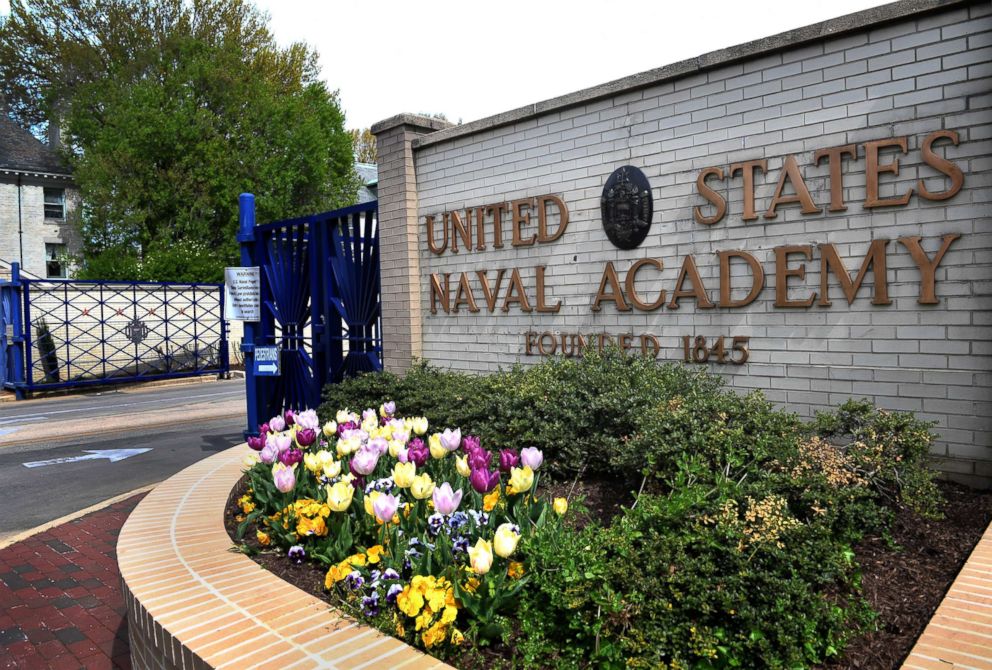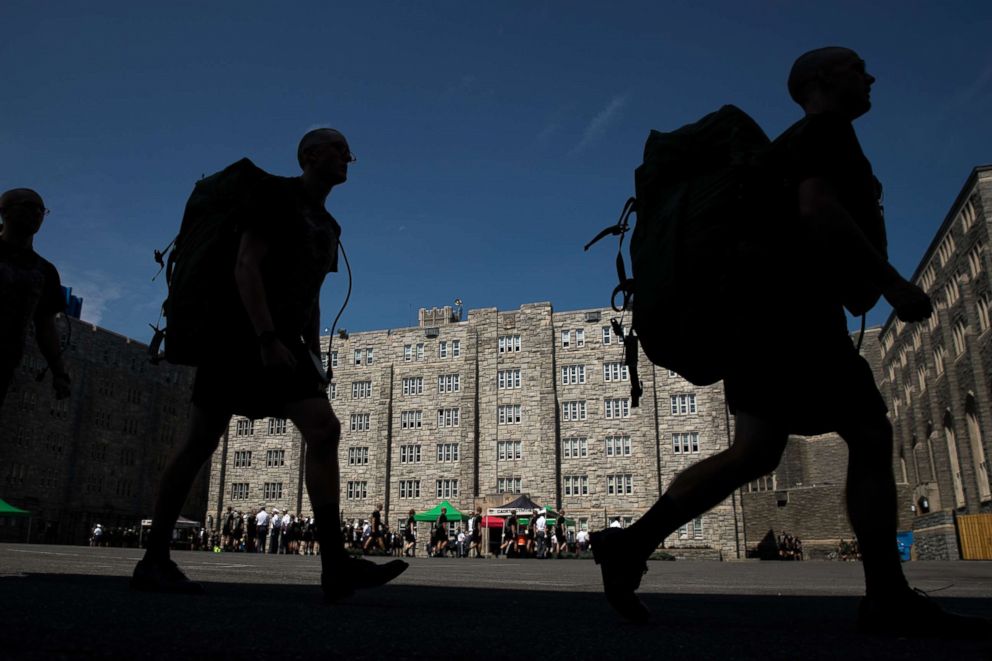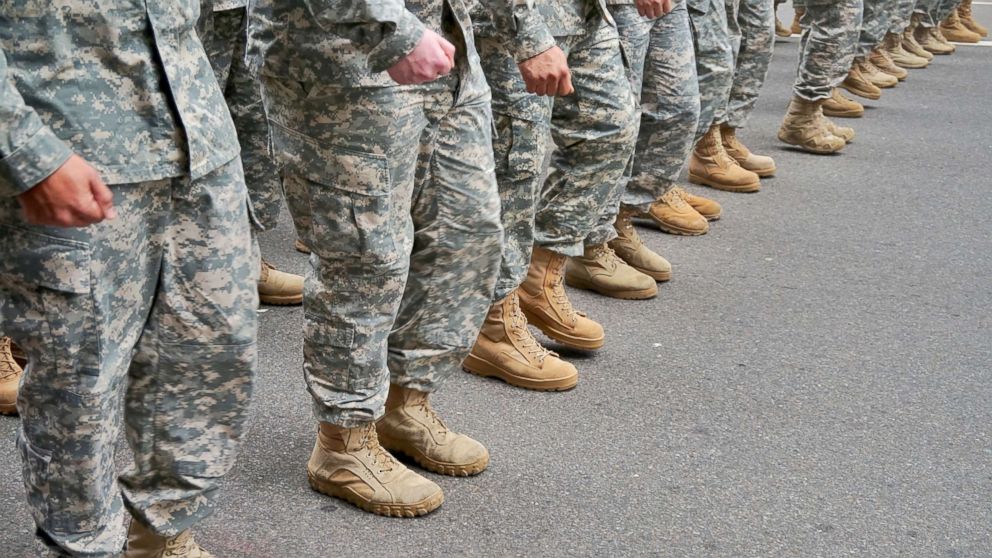Sexual assault and harassment cases up significantly at military service academies despite prevention efforts, Pentagon survey finds
Pentagon officials are concerned that despite significant prevention efforts, a new, anonymous survey indicates a nearly 50 percent spike in the prevalence of unwanted sexual contact at the three military service academies last year, while the number of incidents that were reported directly to authorities remained relatively unchanged.
Conducted every two years, the Pentagon's anonymous survey of the 12,000 cadets and midshipmen at the three academies found 747 reports of unwanted sexual contact during the last academic year, a 47 percent increase over the 507 reported in the 2015-16 school year. The Pentagon survey defines unwanted sexual contact as ranging from unwanted touching to rape.
Separately, the Pentagon's annual review of sexual assault at the military academies found that during the 2017-2018 academic year the academies received a total of 117 unrestricted and restricted reports of sexual assault involving cadets and midshipmen at the U.S. Military Academy, the U.S. Air Force Academy and the U.S. Naval Academy, compared with 112 last year.
Military victims of sexual assault are allowed to file their reports openly in what are known as unrestricted reports, that can lead to prosecution, or confidentially through restricted reports where the victim receives medical care but does not trigger an investigation.

"Unfortunately the findings show that the rates of sexual misconduct at the academies has increased again," said Dr. Elizabeth Van Winkle, executive director of the Defense Department's Office of Force Resiliency. "We find these reports to be frustrating, disheartening and unacceptable."
We find these reports to be frustrating, disheartening and unacceptable.
"We do not believe the trends in this year’s report reflect the time, energy, and commitment dedicated to eliminating sexual misconduct from the service academies," she said.
She said that, instead, the trends appear to be a reflection of the pervasiveness of this conduct and the difficulty in sustaining a culture change over time.

We do not believe the trends in this year’s report reflect the time, energy, and commitment dedicated to eliminating sexual misconduct from the service academies.
The number of reports of sexual assault to authorities increased at two of the service academies, and decreased at the third.
Fifty-six reports of sexual assault were made last year at the U.S. Military Academy at West Point, compared with 50 the previous year. Thirty-two reports of sexual assault were made at the U.S. Naval Academy, compared with 29 the previous year.
The U.S. Air Force Academy reported a decrease -- 29 reports of sexual assault in 2018, down from 33 the previous year.
The overall flat numbers with regards to the number of assaults being reported is a major concern to officials tracking the issue.
"This year's report shows we have more work to do, to ensure our future leaders foster climates that are conducive to good order and discipline," said Rear Admiral Ann M. Burkhardt, Director, Sexual Assault Prevention and Response Office.
"There's not been the change that we needed to see over time, and that's why we're so concerned," said Nate Galbreath, Deputy Director of the Defense Department's Sexual Assault Prevention and Response Office.
"This is the second year where we've had no movement in the metrics in the way that we think is helpful to the population," said Galbreath.
Survey respondents expressed confidence that senior leaders at the academies were making efforts to reduce issue of sexual assault, but expressed low confidence of that among their "near peers" or classmates.
Van Winkle said that perception indicated a change in approach, particularly with instilling leadership among cadets and midshipmen.
"What we have done in the past has often brought about short term results but it's not shown sustained progress," said Van Winkle. "Therefore we are looking at the entire life cycle of our cadets and midshipmen from acceptance into the academies to acceptance into the active force."
A military victims advocacy group slammed the Pentagon's current approach saying senior Pentagon leaders need to be held accountable.
"The academies are grooming the next generation of military leaders. They are supposed to be held to a higher standard. What message does this send to the troops they will be leading," said Col. Don Christensen (ret.), the Air Force's former chief prosecutor and President of Protect Our Defenders.
"It is time for the President and Congress to replace military leadership who have failed to stem the tide of sexual assault and harassment," said Christensen. "Holding senior leaders responsible will send a clear message that not only can the academies do better, but they must do better."
The prevalence survey was conducted in the summer of 2018, too soon to capture the possible effects of new initiatives being launched at the service academies to stem sexual assaults.
Those initiatives include promoting responsible alcohol choices, reinvigorating sexual assault efforts, enhancement of a culture of respect and improvements in reporting of sexual assaults and sexual harassment.
It is difficult to make comparisons of the military's annual reports with sexual assault rates at civilian colleges and universities because there is no comparable report. The last such report in 2015 gathered date from 27 different colleges and universities.
"There is not a whole lot of motivation for them to publish rates of sexual assault and sexual harassment because they don't want a reputation associated with that," said Galbreath.
He explained that cadets and midshipmen face unique pressures not seen in the larger active duty force because of concerns about how they will be perceived by fellow students.
"They want to graduate, they want to get out and they want to join the active force, so they don't want to report something that might impact that or hold them up," said Galbreath.
"This is a struggle. Is this a societal issue? Is this a military issue?" said Van Winkle "It doesn't matter to us, we pull from society and we are responsible for changing them to align with our core values."




